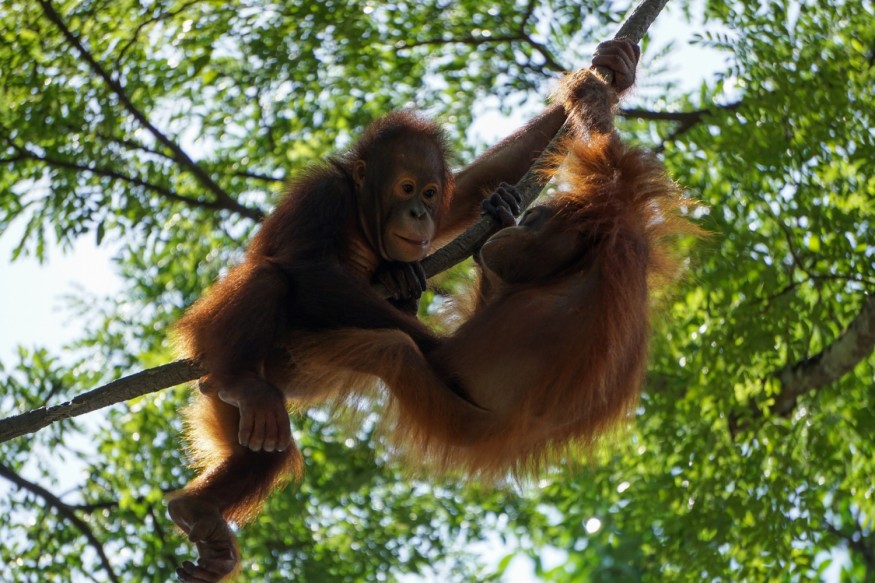Malaysia is dealing with a severe Covid-19 outbreak caused by the extremely infectious Delta variant strain. With thousands of infections and hundreds of deaths being reported every day, Malaysia has also started swabbing antigen test to endangered orangutans.
Covid-19 has infected animals on a few occasions. A zoo in Atlanta revealed over the weekend that many of its gorillas had tested positive for the disease.
Endangered Orangutans in Malaysia Tested Negative

Vets in protective gear administered nose samples to groups of rare and endangered orangutans in Kuala Lumpur, Malaysia, to test for the coronavirus.
According to wildlife officials, 30 red-haired animals in Sabah state on Borneo Island last Tuesday completed their antigen tests and all their results were negative.
They were also the country's first viral tests on orangutans, since the workers of the rehabilitation center were infected with the virus. Officials added that veterinarians would continue to closely examine the apes and that tests will be done on a regular basis.
The International Union for Conservation of Nature has declared Bornean orangutans to be "critically endangered."
According to the WWF, the animals' woodland habitat has been gradually chopped down to make way for agricultural plantations, resulting in a population reduction of more than 50% over the last 60 years.
Gorillas in Zoo Atlanta Tested for Coronavirus
At least 13 western lowland gorillas, including 60-year-old Ozzie, the oldest male gorilla in captivity, have screened positive for COVID-19, according to Atlanta's zoo.
Employees at a Zoo in Atlanta discovered the gorillas were coughing, had runny noses, and had changed appetites on Friday. The respiratory ailment was confirmed by a veterinary lab at the University of Georgia. The National Veterinary Services Lab in Ames, Iowa, is awaiting confirmation, according to Zoo Atlanta. Monoclonal antibodies are being used to treat gorillas at risk of SARS-CoV-2 problems, according to the zoo. The zoo is also putting all 20 of its gorillas, divided into four groups, to the test.
Officials at the zoo think the illness was spread by an asymptomatic staffer who tends for the gorillas. The employee was properly vaccinated and using protective gear such as gloves and a mask. The zoo claims that there is no proof that gorillas can transmit the virus to people and that visitors are too far away to be affected by gorillas.
It is hard to keep sick gorillas apart since they live in such close quarters. The gorillas would be vaccinated with a veterinarian vaccine at the Atlanta Zoo. Vaccines are being given to Zoo Atlanta's Bornean and Sumatran orangutans, Sumatran tigers, African lions, and clouded leopards.
The zoo claims to have strengthened anti-infection efforts, including the use of additional protective masks and suits, as well as more thorough cleaning and ventilation.
People with suspected or confirmed COVID-19 should avoid contact with animals, including pets, livestock, and wildlife, according to recent experimental research. Many mammals, including cats, dogs, bank voles, ferrets, fruit bats, hamsters, mink, pigs, rabbits, racoon dogs, tree shrews, and white-tailed deer, can be infected with the virus.
© 2025 NatureWorldNews.com All rights reserved. Do not reproduce without permission.





